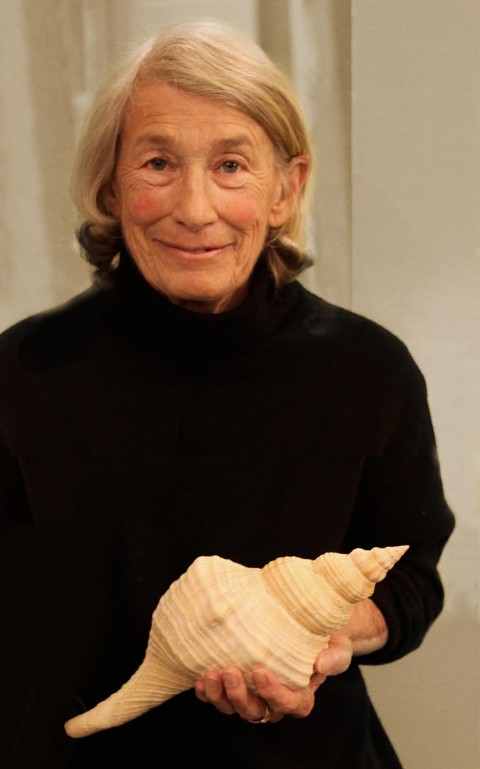Remembering Mary Oliver and her prose
The poet’s essays are winsome and articulate, wide-ranging and intellectually rigorous.

In the days following the death of Mary Oliver, public mourning was impassioned, eloquent, and everywhere. Posts by admirers well-known and unknown crowded social media news feeds. I was caught off guard by the news and surprised by how it surprised me, how viscerally I felt her loss. For years I’ve lived almost daily with Oliver’s work. I’ve written about her in these pages. I knew how old she was. I knew about the cancer. But my heart hurt that day. It still does.
I learned about Oliver’s death from the New York Times, a publication that never ran a full-length review of any of her books. This fact, and what it reveals about the reception of Oliver’s work in prestigious circles, was the subtext of many of the tributes and remembrances that saturated social media in those first few days. Familiar questions were debated, many of which seemed to drill down to this: If you’re Pinterest-quotable, can you be a serious poet? Fresher insights and anecdotes emerged, too: How fiercely Oliver was loved by many in the LGBTQ community. How once, while teaching at Bennington College, she wrote on the chalkboard with her left hand because she’d just been bitten by an injured muskrat she was trying to save.
Read our latest issue or browse back issues.
What I was drawn to in the days after her death was not her poetry so much as her extensive prose. It was hardly mentioned by those who grieved her publicly, and it’s rarely been explored in the (slim) corpus of scholarly work on her 50-plus-year career. But Oliver’s essays are winsome and articulate, wide-ranging and intellectually rigorous. She writes about time, memory, imagination, and work. She writes about the companionship of some creatures and the unknowable wildness of others. In an essay on the sea and its inhabitants, she makes elegant the concept of natural selection: “Every vitality must have a mechanism that recommends it to existence—what seems like ornamentation or phantasm is pure utility. It comes from an engine of mist and electricity that may be playful, and must be assertive. And also, against the odds of endurance in the great-shouldered sea, prolific.”
She writes about the disciplines required of a poet and of any person desiring to live a responsible life. In one essay she advises that “if you have no ceremony, no habits, which may be opulent or may be simple but are exact and rigorous and familiar, how can you reach toward the actuality of faith, or even a moral life, except vaguely?” Oliver was sometimes criticized for the questions that populate her poems. One senses in her prose that the first subject under interrogation is herself.
Oliver wrote two books about poetry. Rules for the Dance is an erudite guide to reading and writing metrical verse. In a chapter on sound she writes that “created ‘silences’ within a poem are noticeable, truncating as they do, for an instant, the otherwise unbroken string of sound. Within a line, use of a mute sound [a hard consonant that blocks breath] is like a tiny swoon.” She begins A Poetry Handbook by observing that “the part of the psyche that works in concert with consciousness and supplies a necessary part of the poem—the heat of a star as opposed to the shape of a star, let us say—exists in a mysterious, unmapped zone: not unconscious, not subconscious, but cautious. It learns quickly what sort of courtship it is going to be.”
Several 19th- and 20th-century poets are subjects of Oliver’s prose, including Keats, Wordsworth, Whitman, Poe, and Frost. (She laments the paucity of recognized women poets in this era.) She offers wise insights about the “unmistakable joy” at the center of Gerard Manley Hopkins’s best-loved poems but also considers the “forlornness” that came to him and how “in his desolation” he wrote “not with his usual, long jointless sentences but with the cramped and hinged hesitations of misery.”
Emerson, with whom Oliver had a deep affinity, “would not turn from the world, which was domestic, and social, and collective, and required action. Neither would he swerve from that unperturbable inner radiance, mystical, forming no rational word but drenched with passionate and untranslatable song. A man should want to be domestic, steady, moral, politic, reasonable. He should want also to be subsumed, whirled, to know himself as dust in the fingers of the wind.”
For all that Oliver wrote about the places she loved, many have wondered why her poems do not address the degradation of the natural world. She explains: “My work doesn’t document any of the sane and learned arguments for saving, healing, and protecting the earth for our existence. What I write begins and ends with the act of noticing and cherishing, and it neither begins nor ends with the human world.” I suspect that Oliver subscribed to a thesis recently proposed by Fred Bahnson: “The more urgent our ecological crisis becomes, the slower our art must proceed.”
Mary Oliver died on the feast of Saint Anthony, the desert monk revered for his insistence that the words of God were ever before him in the nature of all created things. Mary, monkish in her habits of devotion and attention, in the offering up of her own poem-prayers in field and wood, at pond and seashore, lived with the same gentle insistence. Her poetry and prose witness to an unorthodox liturgy of the hours—daily walks, early morning stillness, the stars on a clear, cold night—and we who loved her find her a worthy guide, a companionable presence, still.
A version of this article, which was edited February 8, appears in the print edition under the title “The poet in prose.”







